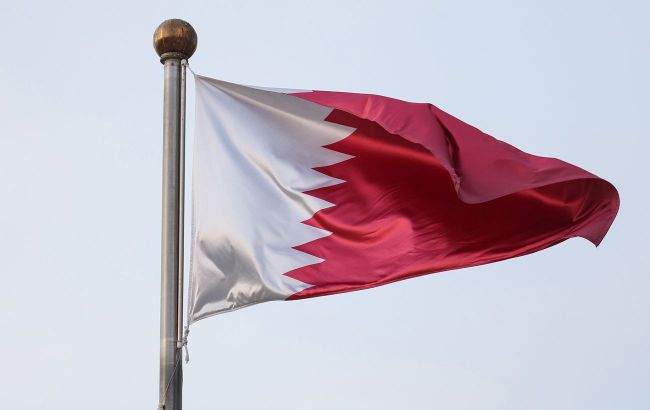Qatar halts mediation in ceasefire in Gaza Strip
 Qatar exits negotiations between Israel and Hamas (Illustrative photo: Getty Images)
Qatar exits negotiations between Israel and Hamas (Illustrative photo: Getty Images)
Qatar has told the Palestinian militant group Hamas and Israel that it will suspend its efforts to mediate a ceasefire and hostage release agreement in Gaza until both sides demonstrate readiness and seriousness to resume negotiations, reports Reuters.
"Qatar notified the parties 10 days ago during the last attempts to reach an agreement that it would stall its efforts to mediate between Hamas and Israel if an agreement was not reached in the round. Qatar will resume those efforts with its partners when the parties show their willingness and seriousness to end the brutal war," the country's Foreign Ministry said.
There has been no official reaction from either Hamas or Israel to this statement.
The latest round of negotiations in mid-October ended without an agreement, as Hamas rejected the proposal for a short-term ceasefire.
Israel had also previously rejected certain proposals for longer-term ceasefire terms. Disagreements focused on the long-term future of Hamas and Israel's presence in the Gaza Strip.
Closure of the Hamas office
On Saturday, November 9, an informed official stated that Qatar concluded that, since its mediation efforts were suspended, Hamas' political office in Doha no longer serves its purpose.
The US told Qatar that Hamas' presence in Doha is no longer acceptable after the group rejected a proposal in October, a US official said on Friday.
However, on Saturday, Qatari authorities clarified that media reports regarding the future of Hamas' political office in Doha were inaccurate, though they did not specify in what way.
Qatar has not set a deadline for the closure of this office or for Hamas leaders to leave the country, said an official familiar with the matter.
Qatar's Ministry of Foreign Affairs stated that the Hamas office served as a communication channel between the parties in the Gaza Strip and had facilitated a short-term ceasefire and a prisoner exchange a year ago.
A ministry spokesperson recalled a previous incident in April when Qatar reassessed the issue of Hamas' presence in the country. As a result, some of the group's officials moved to Türkiye.
"After two weeks, the Biden administration and the Israeli government asked Qatar to request their return. Washington has said negotiations were ineffective when the Hamas leaders were in Türkiye," the official said.
At the same time, three officials from the Palestinian group claimed that Qatar had not informed them of the expulsion of their leaders and that they were no longer welcome in the country.
Qatar's mediation
Qatar has been designated by Washington as a major non-NATO ally and has long sought to play a bridging role between Western powers and their adversaries in the Middle East. Since 2012, the country has hosted Hamas political leaders as part of an agreement with the US, and their presence has facilitated progress in negotiations.
Together with the US and Egypt, Qatar has been engaged in months of unsuccessful negotiations between the warring parties in the Gaza Strip. Any withdrawal from this process could further complicate efforts to reach an agreement.
Hamas in Qatar
The country hosts the largest US airbase in the Middle East, but it also allows Hamas and the Afghan Taliban to have offices in Doha. Qatar also helped facilitate prisoner exchange negotiations between the U.S. and Iran last year.
It is unclear how many Hamas officials live in Doha, but among them are several possible replacements for the group's leader Yehya Sinwar, who was killed by Israeli forces in Gaza last month.
Among them are Sinwar’s deputy Khalil al-Hayya, who led ceasefire negotiations on behalf of the group, and Khaled Meshaal, widely regarded as Hamas's diplomatic face.
The group's former leader, Ismail Haniyeh, who was killed by Israel in Iran in July, was also based in Doha. In early August, his body was transferred to Qatar for burial.
Escalation in the Middle East
At the end of October, US Secretary of State Antony Blinken visited the Middle East, including Israel, Saudi Arabia, and Qatar. During his trip, he sought to prevent further escalation and expansion of the war, particularly in light of Israel's planned strike on Iran in response to the missile attack on October 1.
CIA Director Bill Burns also discussed a ceasefire agreement in the Gaza Strip with Israel and Qatar.
Egyptian President Abdel Fattah el-Sisi proposed his ceasefire plan between Israel and Hamas, which includes the release of several hostages held in the Gaza Strip.

